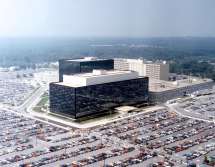NSA seeks pay bump for its ‘high-end, exquisite civilian talent’

NSA Director Michael Rogers recently authorized the introduction of a specially tailored compensation package for the spy agency’s “high-end” cybersecurity workers.
Rogers discussed the move during a public Senate Armed Services Committee hearing Thursday where the topic of discussion focused on the intelligence community’s investigations surrounding Russian interference in the U.S. presidential election.
Asked about the NSA’s and U.S. Cyber Command’s ability to recruit and retain talent, Rogers — who heads both organizations — said that he’s less worried about filling military positions than civilian posts.
“In the military aspect we are exceeding both our recruiting and retention expectation,” said Rogers, “my immediate concern is a little less on the uniform side in part because if money were a primary driver for them then they wouldn’t have come to us in the first place.”
He added, “on the civilian side, however, that’s probably my more immediate concern. I am finding it more challenging. We’re able to recruit well. [But] retaining them over time, I am really running into this on the NSA side right now. How do you retain very high-end, exquisite civilian talent for extended periods of time?”
Director of National Intelligence James Clapper backed Rogers’ call for increased budget flexibility so that the agency could better compensate its highly skilled, technically gifted cybersecurity specialists. Although working in the U.S. intelligence community should not be driven by money, argued Clapper, the government must confront the realities of a private sector that is increasingly eager to offer exuberant salaries for security professionals.
“I do think that consideration must be given to having more flexibility, more latitude on compensation for our high-end cyber specialists who are lured away by industry who are paying huge salaries,” Clapper told committee members.
The NSA and Office of the Director of National Intelligence declined to comment. A Defense Department spokesperson deferred back to the NSA’s statement.
The rate at which NSA cybersecurity specialists are leaving in favor of private sector work has increased over the last several years and has gotten considerably worse over the last 12 months, multiple former NSA officials and D.C. area-based cybersecurity employers previously told CyberScoop.
“I do hear that people are increasingly leaving in large numbers and it is a combination of things that start with [morale] and there’s now much more money on the outside,” former NSA Director Keith Alexander said during a public event in earlier December.
“I am honestly surprised that some of these people in cyber companies make up to seven figures. That’s five times what the chairman of the Joint Chiefs of Staff makes. Right? And these are people that are 32 years old,” said Alexander. “Do the math. [The NSA] has great competition.”





